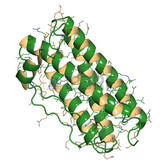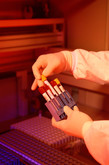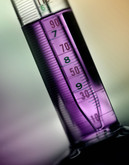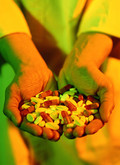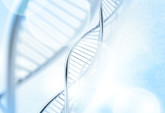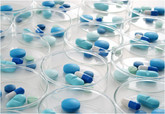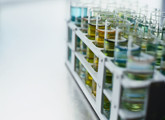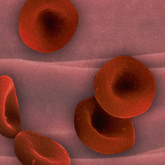Biosimilars/Research
Positive phase III results for Sandoz etanercept biosimilar
Results of a study of Sandoz’s etanercept biosimilar (GP2015) compared to Amgen/Pfizer’s arthritis blockbuster Enbrel (etanercept) have shown ‘equivalent efficacy’, according to the company.
Study supports interchangeability of TNF-α biosimilars
For years, the costs of drugs have been rising. Prescription drug spending in the US rose by 12.6% in 2014 and almost 1 in 4 Americans report difficulty affording their prescriptions. A familiar situation in many countries, the escalating costs of drugs make them unaffordable for a large part of the world.
More positive phase I results for Coherus pegfilgrastim biosimilar
US-based biosimilars developer Coherus BioSciences (Coherus) announced on 11 July 2016 that follow-on results from a phase I study of its candidate pegfilgrastim biosimilar (CHS 1701) were positive.
Biosimilars for use in fertility treatment
As patents expire on originator products, there is increasing interest in developing biosimilars globally. Authors Raoul Orvieto and David Seifer from the Sheba Medical Center and Sackler Faculty of Medicine of the Tel Aviv University in Israel investigated biosimilars used in fertility treatment [1].
Safety and efficacy of Remsima in IBD patients in clinical practice
Researchers from Spain presented results from a study of the use of the infliximab biosimilar Remsima in ulcerative colitis disease patients in clinical practice after six months treatment.
Use of biosimilars in oncology in France
Biosimilar drugs are biological drugs clinically similar to their reference products. They correspond to a generic drug approach applied to biological agents. The goal of biosimilars is to open the market and to provide significantly less costly biological agents. The approval of biosimilars is abbreviated when compared to that of the reference biologicals, but includes clinical trials (distinguishing them from generics). In oncology, the currently available biosimilars filgrastim and epoetin alfa are used in supportive care. Author Dominique Leveque from the Hôpital Hautepierre, Strasbourg, France discusses the situation regarding the use of biosimilars in France [1].
Biosimilar manufacturers fail to compete in Italy
In the current global economic crisis, significant savings on healthcare spending should be made as a result of increased competition between manufacturers of off-patent biologicals or biosimilars. If only that were so, writes Professor Livio Garattini at the Centre for Health Economics, Ranica, Italy [1], who has analysed the pricing of off-patent biologicals in Italy, a country particularly hard hit by the economic downturn.
Assessment of interchangeability under the BPCI Act
The Biologics Price Competition and Innovation (BPCI) Act gives FDA the authority to designate a biosimilar as interchangeable with its reference product. This means that the biosimilar may be substituted for the originator product by the pharmacist without reference to the prescribing physician [1]. The criteria for establishing interchangeability of biosimilars, despite FDA issuing three draft guidance documents, are still not clear [2].
The ethics of biosimilars
Biosimilars in the EU have to undergo a strictly regulated comparability exercise against the reference medicinal product on the physicochemical, analytical, functional, non-clinical and clinical level. Only if a biosimilar is a close copy of the reference medicine will it be approved as a biosimilar [1]. Despite this fact, however, ethical issues have been raised on the use of granulocyte colony-stimulating factor (G-CSF, filgrastim) in healthy volunteers by the European Group for Blood and Marrow Transplantation (EBMT) and the World Marrow Donor Association (WMDA).
Assessment of biosimilarity under the BPCI Act
The Biologics Price Competition and Innovation (BPCI) Act defines a biosimilar as a product that is highly similar to the reference product notwithstanding minor differences in clinically inactive components and without clinically meaningful differences in terms of safety, purity, and potency. Although draft guidances issued by FDA do begin to clarify the issue, little or no discussion regarding how similar is considered highly similar is given in the BPCI Act and no criteria for assessing biosimilarity were mentioned [1].
G-CSF biosimilars – World Marrow Donor Association position
The World Marrow Donor Association (WMDA) has expressed its position on the use of granulocyte colony-stimulating factor (G-CSF) biosimilars in healthy donors in an article published in the journal Haematologica [1].
Biosimilarity and interchangeability under the BPCI Act
In the US, the Biologics Price Competition and Innovation (BPCI) Act was signed into law on 23 March 2010, giving FDA the authority to approve biosimilars. FDA then issued guidelines for biosimilar applications in February 2012 in the form of three draft guidance documents [1]. Despite this, there remain scientific issues regarding the assessment biosimilars and the criteria for establishing biosimilarity and interchangeability of biosimilars [2].
Biosimilar terminology confusion
Imprecise usage of the term biosimilar in the literature is an issue that has already been highlighted by EMA [1].
Pharmaceutical price regulation in Saudi Arabia: a countdown to affordable biosimilars
The pricing of pharmaceuticals and biosimilars is generally subject to national regulatory control. Regulation is in place to ensure pharmaceutical affordability, yet enable profitability for pharmaceutical companies and facilitate innovation. A recent paper on pharmaceutical price regulation in Saudi Arabia by Alhomaidan et al. [1], charts the regulatory procedures in place, and outlines how their evolution has led to today’s regulated pricing of biosimilars.
Positive phase III results for Amgen’s trastuzumab biosimilar
Results of a study of Amgen and Allergen’s trastuzumab biosimilar (ABP 980) compared to Herceptin (trastuzumab) have ‘ruled out inferiority’, according to the company.
Positive clinical data for three anti-TNF-α biosimilars
Results of studies of three biosimilars from Samsung Bioepis, Benepali (etanercept), Flixabi (infliximab) and candidate biosimilar SB5 (adalimumab), have shown ‘comparable outcomes with regards to both the efficacy and safety of treatment’ when compared to their respective reference products, according to the company [1-3].
Mylan presents comparability data for trastuzumab biosimilar
Generics giant Mylan Pharmaceuticals (Mylan) presented robust data from its biosimilar trastuzumab programme at the American Society of Clinical Oncology (ASCO) Annual Meeting ASCO 2016 held in Chicago, USA on 3–7 June 2016.
Epoetin alfa biosimilar effective in treating anaemia
Authors of a post-marketing study of the epoetin alfa biosimilar Retacrit say that the biosimilar is effective and well tolerated in treating chemotherapy-induced anaemia (CIA) [1].
Evolution of biosimilars in developed and developing countries
The development of biologicals has experienced continuous growth over the past three decades. The expiration of patent protection for many biologicals has led to the development of biosimilars in many countries around the world. This paper reviews the literature on biosimilars and covers their therapeutic status, clinical trials, approved biosimilars and regulatory guidelines in Japan, South Korea and Malaysia [1].
Biosimilars: the benefits need to be communicated
Extrapolation may be the most contentious issue of biosimilar development, but it is also its single greatest benefit, says Dr Martina Weise of the Federal Institute for Drugs and Medical Devices in Germany.


